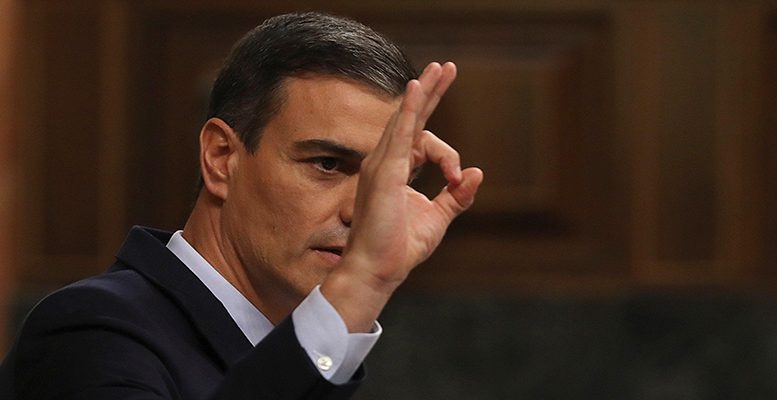Fernando González Urbaneja | The most striking aspect of the Prime Minister’s speech on Saturday was his assertion that the judiciary (Constitutional and CGPJ) is delegitimised because the PP does not accept the terms proposed by the government. To top off the accusation, Sánchez argues that the PP, by not renewing, violates the Constitution. The political history of the PSOE led by Sánchez insists on pushing the opposition, the PP, Vox and Ciudadanos, into the outer darkness, outside the walls of the Constitution. At the same time, he presents himself as a champion of pacts and agreements… for the good of Spain. Pacts and agreements that he has signed with the parties which have the liquidation of the Constitution in their DNA.
Delegitimising other powers and institutions, while demonising opponents, polarising public opinion and attacking the media (media terminals of dark powers) is part of the well-known manual on how to destroy democracy. Whether this is a calculated operation or an unintended consequence of disordered and personalistic thinking is a matter for each to conclude.
Over the past week we have learned of several, apparently minor, cases along these lines of democratic disorder. First, the case of INDRA, a semi-public listed company, where a concert of shareholders led by SEPI (the government) and two last-minute investors joined in the change of management of the company. The crass intervention in form (and substance), overlooked all criteria of good corporate governance. It was striking that investors as discreet and prudent as the March group left Indra weeks ago because they considered it to be a mature investment with little potential. The replacement by investors with indications of private interests unrelated to those of the company is proof that the change of shareholders stinks. Finally, the dismissal of the directors classified as independent signifies the end of a “harassment and demolition” that deserves to be described as blatant interventionism.
At the same time, it has been leaked that the Ministry of Economy is preparing a reform of the National Institute of Statistics with the replacement of the president. A change in the final stretch of the legislature for a body that needs independence and credit. It is notorious that the government is annoyed with the INE data and that some ministers do not hesitate to disqualify it because, they say, “it measures badly… against the government… because it is infiltrated by the PP”.
The hostility of the ministers towards INE coincides with their hostility towards other institutions such as the Bank of Spain, which does not show the enthusiasm that the government believes it deserves for its economic policy. In the background, one senses electoral tension, unease in the Moncloa because the polls are not favourable. The idea of the external enemy, the fear of change, is part of the loser’s handbook.





